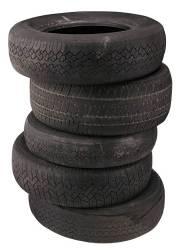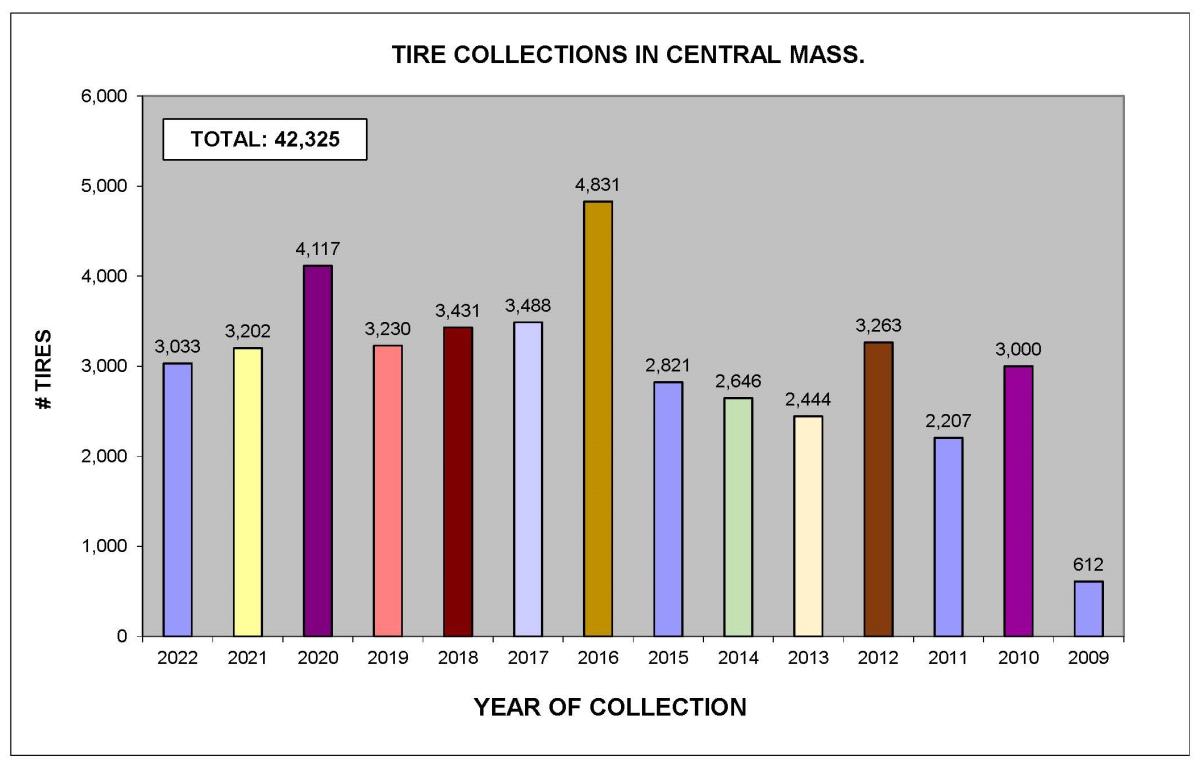About the Program

Purpose:
Why is CMMCP concerned about used tires?
Used tire casings left out in the environment and allowed to hold water provide suitable areas for larval mosquito development, including those species known to carry West Nile virus such as Oc. j. japonicus and Culex pipiens. During the course of one season, the potential exists for hundreds or even thousands of mosquitoes to emerge from just one tire. If tires infested with mosquito eggs, larvae or pupae are transported, the potential to introduce mosquito species into new areas and/or the potential for the spread of arboviruses and their transmission may increase significantly.
- Ochlerotatus j. japonicus (a.k.a. the Asian rockpool mosquito) — Invasive species found in Mass. in 2000. This species was first found in New York & New Jersey in 1998, then Connecticut in 1999. This mosquito is native to Japan, Korea, Taiwan, and southern China. It is suspected that this species was brought to the US in used tires. Its preferred habitat is artificial containers and discarded tire casings. West Nile Virus has been isolated from this species.
- Culex pipiens (a.k.a. the northern house mosquito) — Very common year round mosquito which primarily feeds on birds. It will readily enter a house, but is considered shy. It will typically only bite people when they are motionless, usually while they are sleeping. The larvae are found in water holding containers and in polluted waters. Culex pipiens are considered the primary vector (carrier) of West Nile Virus.
- Aedes albopictus (a.k.a. the Asian tiger mosquito) — Invasive mosquito becoming more common as far north as Massachusetts. Well established in New York and New Jersey and a common daytime biter. The larvae are found in water holding containers. In it's more southern habitat, a vector of Zika virus, yellow fever virus, dengue fever, and Chikungunya virus.
Guidelines:
All tires are brought to a recycling facility in Littleton called FBS Tire Recyling (formerly Routhier & Sons Tire Recycling). For these reasons and as a value added service to our member cites and towns, CMMCP has developed a used tire program, consisting of the following guidelines:
- We accept passenger and light truck tires only.
- Off rim, no mounted tires will be accepted.
- Maximum number of tires taken from one property will be 10 at one time, subject to change without notice.
- Requests for tire removal shall be done according to established CMMCP procedures.
- We reserve the right to refuse anything determined to be unsuitable for this program.
Tires accepted as part of this program will be sent to an approved facility for recycling. This program will comply with all state and federal solid waste regulations, as well as all local fire codes. This program is subject to end without notice.
We have currently been removing tire piles in member cities and towns on an intermittent basis. If you know of a tire pile in your area, or would like to participate in a curbside pickup in the future, please complete our online webform: Request Tire Curbside Pickup. When we schedule a curbside pickup event in your area you will be notified in advance.
Eligibility:
To qualify for this program, you must:
- Be a resident or municipal official in a CMMCP member city or town.
- The tires must be in or from that locality.
- Businesses are not eligible at this time.
View the CMMCP Service Area Map here.
Cost:
There is no additional cost to residents or municipalities. This program is part of the full suite of mosquito control services offered.
Chart:


